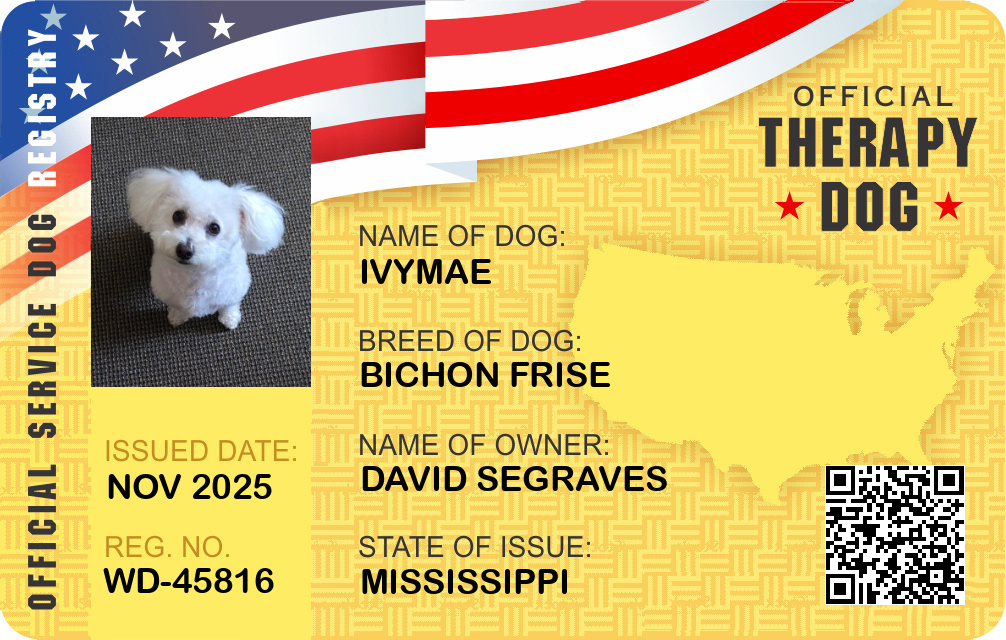Montana Emotional Support Animal Laws

Overview of ESAs and Legal Definitions in Montana
Emotional Support Animals (ESAs) in Montana, as elsewhere, play a pivotal role in the mental well-being of individuals who require emotional or psychological support. Understanding their legal standing in Montana requires clarity on definitions, laws, and distinctions between ESAs and other support animals.
What is an Emotional Support Animal?
An Emotional Support Animal is a companion animal that offers therapeutic benefits to an individual with a mental or emotional disability. Unlike service animals, ESAs do not need specialized training to perform specific tasks related to a disability. Instead, their primary role is to provide comfort, companionship, and relief from symptoms of anxiety, depression, PTSD, or other mental health challenges.
How ESAs Differ from Service Animals
There are significant distinctions between ESAs and service animals that impact their legal treatment and accommodations. The primary differentiator lies in training and function:
- Service Animals: These are dogs, and in some cases miniature horses, specifically trained to perform tasks or do work for persons with disabilities. They are covered under the Americans with Disabilities Act (ADA), allowing access to public spaces.
- Emotional Support Animals: These animals, which can be a variety of species, provide emotional comfort but lack specific task-trained duties. ESAs are not covered by the ADA and typically do not have the same public access rights, focusing instead on housing and travel accommodations.
Key Federal Laws Affecting ESAs (e.g., FHA, ACAA)
Two primary federal laws shape ESA regulations:
- Fair Housing Act (FHA): This law requires housing providers to make reasonable accommodations for individuals with ESAs to ensure equal enjoyment of the premises. Under the FHA, no-pets policies often can’t be enforced for ESA owners.
- Air Carrier Access Act (ACAA): Historically, the ACAA allowed ESA owners to travel with their animals in the cabin without additional fees. However, changes implemented by the U.S. Department of Transportation in 2021 now categorize ESAs as pets for airline travel, subjecting them to airline-specific pet policies.
State-Specific ESA Laws in Montana
While federal regulations provide overarching guidelines, Montana may have additional requirements or stipulations for ESA recognition, particularly in housing, public access, transportation, and employment.
Housing Rights and Responsibilities
In Montana, individuals with ESAs are protected by the FHA, mandating that landlords grant reasonable accommodation requests for ESAs. Landlords may require:
- A valid ESA letter from a licensed mental health professional.
- Assurance that the ESA does not pose a threat to the health and safety of others.
- An understanding that ESAs, unlike pets, are exempt from standard pet fees or deposits.
Tenants are responsible for the animal's behavior and any damage it may cause. However, landlords cannot demand details about the individual's disability or require excessive documentation beyond the standard ESA letter.
Public Access and Accommodation
Montana does not afford the same public access rights to ESAs as service animals. This means that in places like restaurants, stores, or entertainment venues, ESAs can be denied entry and are subject to the business's pet policy. Public transport also categorizes ESAs according to standard pet protocols.
Transportation and Travel Rules
Montana residents planning to travel with an ESA must navigate different rules depending on the mode of transport:
- Air Travel: Following changes to the ACAA, airlines no longer recognize ESAs as service animals. ESAs must travel under the airline's pet policies, typically in a carrier within the cabin or checked as cargo.
- Other Transportation: Buses, trains, and other public transportation services in Montana follow similar guidelines to public access rules, treating ESAs like pets.
Employment and Workplace Considerations
ESAs do not have prescribed legal protections in the workplace like service animals. However, employees in Montana may discuss needs for ESAs with their employers in the context of reasonable accommodations under the Americans with Disabilities Act (ADA) or through employer-specific policies. Acceptance is a
Register Your Dog Instantly
t the discretion of the employer, who must weigh the request against workplace needs and any impact on operations.Documentation, Requirements, and Processes in Montana
For ESAs, correct documentation is crucial to receive legal protections or accommodations.
ESA Letters and Who Can Issue Them
A legitimate ESA letter must come from a licensed mental health professional. This could be a psychologist, psychiatrist, social worker, or therapist licensed to practice in Montana. The letter should:
- Be on professional letterhead.
- Include the professional's licensing information.
- Indicate the individual's need for an ESA as part of their therapeutic treatment plan.
Online services offering ESA letters are prevalent, but individuals should exercise caution and ensure authenticity and compliance with both state and federal guidelines.
Registration, Certifications, and Common Misconceptions
Unlike service animals, ESAs do not require official training, registration, or certification. Any claims of an ESA registry or ID are misleading and can lead to misunderstandings. Verification primarily rests on the ESA letter, not on any commercial form of certification.
Landlord, Business, and Provider Verification Rules
Landlords and property managers generally accept ESA letters as sufficient documentation. However, businesses and public locations are not required to accommodate ESAs and may request verification documents if facilitating access. Pet policies typically apply unless otherwise stated.
Rights, Limitations, and Legal Risks
Understanding the legal landscape for ESAs includes knowing rights, recognizing limits, and avoiding potential legal pitfalls.
Rights ESA Owners Have in Montana
ESA owners in Montana can expect:
- Protection under the FHA for housing accommodations.
- Freedom from pet fees or deposits when renting if proper ESA documentation is provided.
- Reasonable accommodation requests in housing are considered valid with proper documentation.
Limits on ESA Protections and Common Restrictions
Despite certain rights, ESA protections do not extend to:
- Free public access (unlike service animals).
- General workplace accommodations as a right.
- Unquestioned access during travel on all transportation modes.
Penalties for Fraud or Misrepresentation
Falsely representing an animal as an ESA or using fraudulent documentation is illegal and can result in penalties or eviction. Individuals should ensure authenticity when applying for ESA status to avoid legal complications.
Practical Guidance for ESA Owners in Montana
Navigating ESA regulations can be straightforward with preparation and understanding.
How to Qualify for an ESA Legitimately
Qualifying for an ESA involves:
- Consulting with a licensed mental health professional.
- Obtaining a legitimate ESA letter that reflects ongoing treatment needs.
- Avoiding online scams promising fast documentation without professional consultation.
How to Talk to Landlords, Airlines, and Employers
Effective communication is key:
- Approach discussions openly and have all necessary documentation ready.
- Clarify the therapeutic role of the ESA according to its designation.
- Understand and be prepared to adhere to existing pet policies for transportation.
Tips for Avoiding Scams and Legal Problems
- Verify the legitimacy of ESA letters by ensuring they are from licensed professionals.
- Be wary of instant ESA registration services.
- Update documentation annually to reflect ongoing therapeutic needs.
Summary of ESA Laws in Montana
As an ESA owner in Montana, remember these key points:
- Emotional Support Animals provide emotional comfort and require an ESA letter from a licensed mental health professional for housing rights.
- ESAs do not have the same public access or travel rights as service animals post-2021 ACAA amendments; they are subject to pet policy regulations.
- While Montana does not have specific ESA employment laws, confer with employers about potential workplace accommodations.
- Beware of legal risks; misrepresenting an ESA as a service animal can result in penalties. Follow legal frameworks and be transparent in documentation and accommodation discussions.











